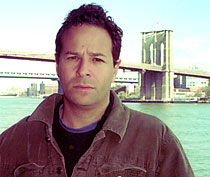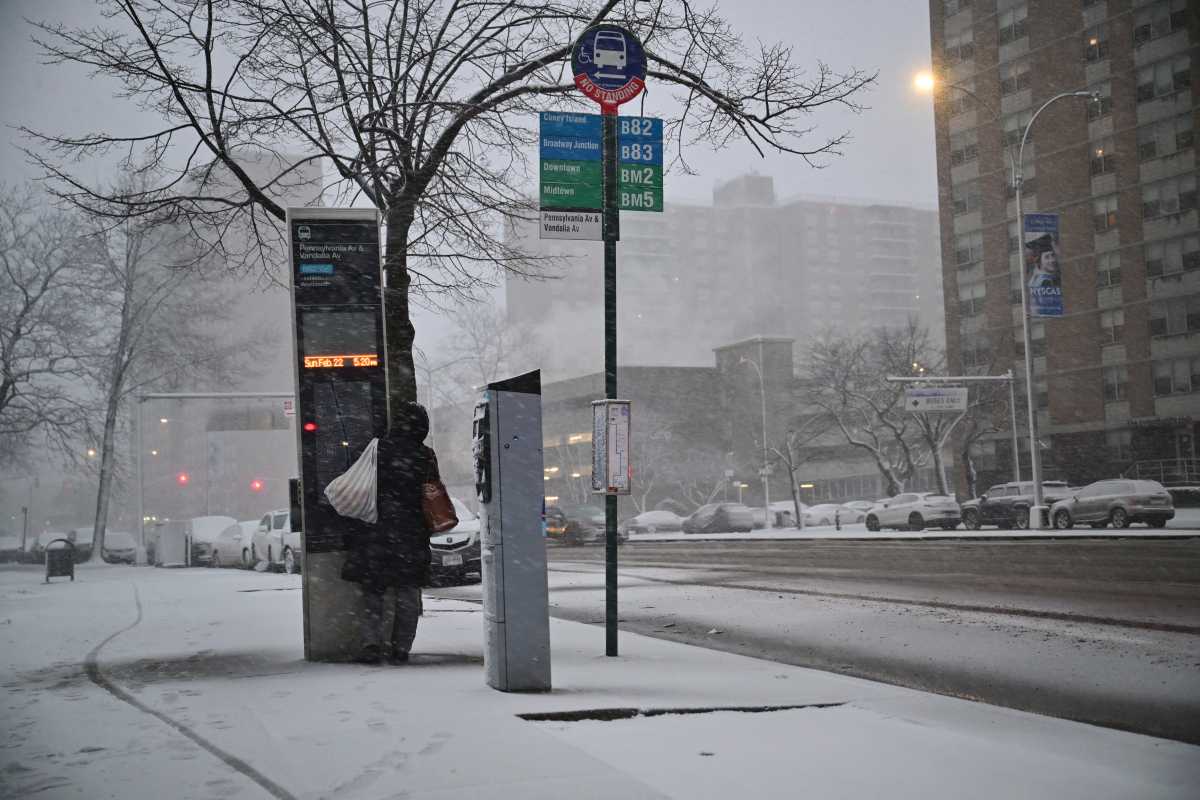The story of the invention of Sweet’N Low is a great tale of
post-World War II America. It is a history of the national diet.
It is a cautionary tale of political corruption.
But mostly, it is an amazing Brooklyn story.
Sweet’N Low is still made today where it was invented in 1957
– in a low-slung, gray factory across from the Brooklyn Navy
Yard. From the outside, it looks no different than all the buildings
where, decades ago, this borough hammered out its reputation:
"Brooklyn makes, the world takes."
Those walls can’t talk, but, fortunately for us, writer Rich
Cohen can – and does.
Even more fortunately for us, Cohen is not only a gifted journalist
– his prior books include "Tough Jews: Fathers, Sons and
Gangster Dreams" and "The Avengers: A Jewish War Story"
– but he is also the son of Ellen Cohen, the daughter of Sweet’N
Low’s inventor, Ben Eisenstadt.
Her mom, Betty, later wrote a will that disinherited Ellen "and
her issue." (By "issue," grandma meant Cohen and
his two siblings.)
"All they have left me is this story," Cohen writes
in the introduction to "Sweet and Low" (Farrar, Straus
and Giroux), his memoir of how the world’s most-famous artificial
sweetener saved plenty of teeth, but rotted his family to the
core.
"To be disinherited is to be set free!"
Cohen certainly lives up to that promise. His book covers the
growth of this famous Brooklyn product, recounting how an orphaned
Eisenstadt raised himself and put himself through law school,
only to graduate on the eve of the Great Depression; how Eisenstadt
eventually opened a cafeteria that served hungry sailors at the
Navy Yard; how Eisenstadt, disgusted by open bowls of sugar at
most diners, invented the sugar packet; how Eisenstadt got screwed
out of the millions that such an innovation should have brought
him; how Eisenstadt turned saccharin, then a drug for diabetics,
into the world’s first mass-produced fake sweetener; and how
his factory later became infiltrated by the mob and linked to
alleged campaign finance abuses of former Sen. Al D’Amato.
But Cohen also dives into gory details of the wacky Eisenstadt-Cohen
family that only a member of it could know. For instance, one
of Eisenstadt’s daughters, Gladys, didn’t leave her house in
Flatbush for 30 years – living in an icebox of a room and ruling
the empire with nothing more than a phone, a fax machine and
conspiracy theories. Another of Eisenstadt’s offspring, Ira,
lives on the Upper West Side with a few dozen cats. And the lawyer
who fixed Betty’s will did not know she was not "of sound
mind" when she disinherited "Ellen and her issue."
"I knew all the stuff that had been reported before, but
the family stuff was even weirder and even more painful,"
Cohen told The Brooklyn Papers this week, days after the publication
of his book. "Why was my mom disinherited? It’s insane."
How insane is this family? When Cohen interviewed his uncle Marvin
for the book, Marvin told him that he could also interview his
crazy aunt Gladys – but on one condition: that Cohen not tell
Gladys that he spoke to Marvin. Cohen agreed, but then Marvin
called Gladys and told her that he had spoken to Cohen. So when
Cohen showed up to interview Gladys, she was enraged at him for
concealing that he had spoken to Marvin – the very man who asked
him not to mention their conversation!
"The classic no-win situation," Cohen said. "But
what are you going to do? It’s family."
"Sweet and Low" is not just a family memoir – despite
its saccharine subtitle, "A Family Story." It is much
bigger than that – a story of the rise and fall of a great company,
a history of America’s obsession with weight and, at bottom,
a metaphor for the borough itself.
"I originally wanted to subtitle it, ’A Brooklyn Gothic,’
which it is, but the publisher didn’t think it was universal
enough," Cohen said.
But his instincts were right. This book – indeed, this story
– could be set nowhere else but here.
The key players are all from Brooklyn – and are all touched by
the borough’s peculiar neurosis: the feeling that we are always
second best to Manhattan.
"My father always said that when he writes his memoir, he’ll
call it, ’I Never Made Manhattan,’ " Cohen said. "That
longing drives the whole story."
That neurosis also drove Eisenstadt and his customers.
"The money and the product and the people all come from
Brooklyn," Cohen writes, "but it’s more than that.
It’s the longing of the borough, the collective energy of the
millions of immigrants who flooded Brooklyn at the beginning
of the 20th century. The diet craze that turned Sweet’N Low into
a household name is a concrete manifestation of that longing.
Diet cola, the bathroom scale, Sweet’N Low – it all comes from
Brooklyn, the cradle of a new culture, the culture of the body,
with its quest for complete freedom: freedom from history, freedom
from exclusion, freedom from fat. It’s the longing that created
the fortune [that] destroyed my family."
It’s a family that Brooklynites of a certain age will recognize
right away. Cohen’s father, Herb, was a first-generation American,
born in Bensonhurst when that neighborhood was a Jewish ghetto.
Cohen’s mother, Betty Eisenstadt, was second-generation; the
Eisenstadt’s were lords of Flatbush, when Flatbush was the Scarsdale
of New York City.
"That little difference – my father’s parents still spoke
Yiddish, while my mother’s parents were fully assimilated – was
everything in Brooklyn in those days," Cohen said. "And
a lot of what happened in the book is a result of that."
And therein lies another great metaphor. Eisenstadt’s son, Marvin,
for example, would go on to run the factory, but he could never
be Ben – the up-from-the-bootstraps, first-generation patriarch
– because he grew up in privilege.
"It’s like our entire country, on some level," Cohen
said. "Ben could not raise a son like Ben because our entire
country’s ethos is that we all want something better for the
generation that follows us. But what that means is that there’s
always someone hungrier – another Ben, most likely a new immigrant
– to take it away from us because we’re not fighting, innovating,
growing like Ben did."
The factory that makes Sweet’N Low – Cumberland Packing Company
– still churns out millions of the bright-pink packets every
year (and, despite a decline in sales, is actively courted by
city officials to keep its 400 or so jobs in Brooklyn).
And Eisenstadt’s other great legacy, Maimonides Medical Center,
still has a Ben and Betty Eisenstadt Pavilion to honor his philanthropic
work at the hospital late in his life.
"Ben was a great man who shaped the Brooklyn we live in
today," Cohen said. "Through it all – the disinheritance,
the mob scandal, the [mental illness], I do not dislike these
people. I see the good in all of them."
Rich Cohen will read from his book "Sweet
and Low" (Farrar, Straus and Giroux, $25) on June 27 at
6:30 pm at the Brooklyn Public Library’s Brooklyn Heights branch
(280 Cadman Plaza West at Tillary Street). The book can be ordered
through, Barnes & Noble in Brooklyn Heights [106 Court St.
at State Street, (718) 246-4996] or Barnes & Noble in Park
Slope [267 Seventh Ave. at Sixth Street, (718) 832-9066].

























